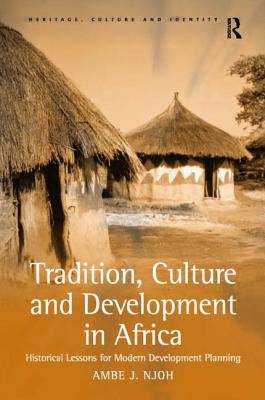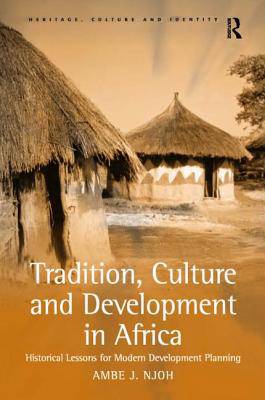
- Afhalen na 1 uur in een winkel met voorraad
- Gratis thuislevering in België vanaf € 30
- Ruim aanbod met 7 miljoen producten
- Afhalen na 1 uur in een winkel met voorraad
- Gratis thuislevering in België vanaf € 30
- Ruim aanbod met 7 miljoen producten
Zoeken
Tradition, Culture and Development in Africa
Historical Lessons for Modern Development Planning
Ambe J Njoh
€ 343,45
+ 686 punten
Omschrijving
By linking culture and tradition with socio-economic development, this book breaks new ground in the discourse on development. It highlights the differences between Euro-centric and African culture, where concepts such as capital accumulation, entrepreneurial attitudes and material wealth are not top priority. In doing so, it dispels popular myths, stereotypes and distortions, as well as discounting misleading accounts about major aspects of African culture and traditional practices.
Specificaties
Betrokkenen
- Auteur(s):
- Uitgeverij:
Inhoud
- Aantal bladzijden:
- 240
- Taal:
- Engels
- Reeks:
Eigenschappen
- Productcode (EAN):
- 9780754648840
- Verschijningsdatum:
- 28/11/2006
- Uitvoering:
- Hardcover
- Formaat:
- Genaaid
- Afmetingen:
- 156 mm x 234 mm
- Gewicht:
- 517 g

Alleen bij Standaard Boekhandel
+ 686 punten op je klantenkaart van Standaard Boekhandel
Beoordelingen
We publiceren alleen reviews die voldoen aan de voorwaarden voor reviews. Bekijk onze voorwaarden voor reviews.







